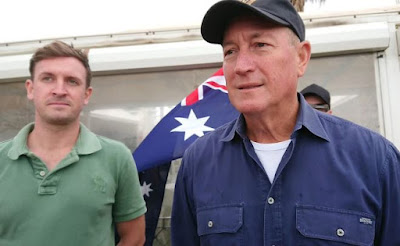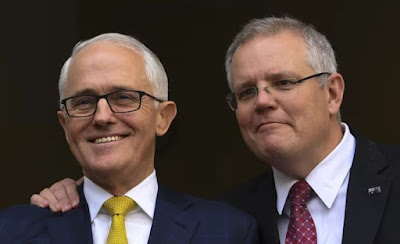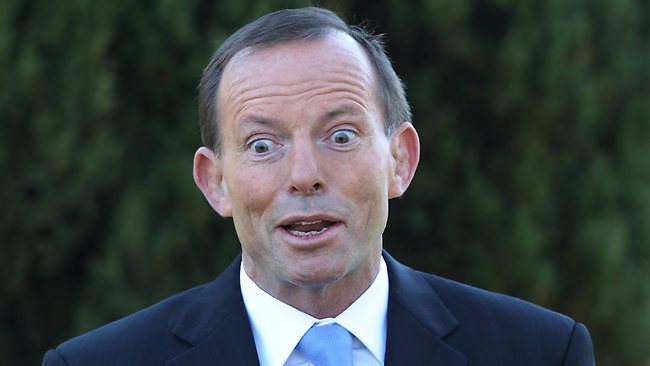IF JACINDA ARDERN wasn’t congratulating Victorian Labor’s Dan Andrews on Saturday evening, then she bloody well should’ve been. With a third successive Labor victory under his belt, Andrews is set to become the state’s longest-serving Labor premier. In addition to offering her own, and her party’s, hearty congratulations, the New Zealand prime minister must have been sorely tempted to add: “How the hell did you do it!”
It’s a question the whole of the Australian Right will be asking themselves. They were so confident of winning Victoria that they simply failed to notice just how profoundly the politics of the Lucky Country have changed. It simply did not occur to them that a clear majority of the population saw Andrews as something other than a cruel and capricious Covid tyrant who had locked Victorians down for weeks – and months – on end. They could not conceive a Labor premier, whose actions had unleashed street battles between trade unionists and state police, possibly retaining the loyalty of Labor voters.
As far as the Australian Right was concerned, Andrews and the Victorian Labor Party were dog-tucker. Their man, the Liberal Party leader, Matthew Guy, couldn’t lose. Victoria was about to be prized out of Labor’s cold dead hands. (The party has governed the state for all but 4 of the last 27 years.)
Those who ventured onto Twitter to impart the heretical information that there were signs Labor might win, were greeted with scorn, and tweeted with contempt. “Just you wait ‘til Saturday,” crowed the over-confident Right, “then you’ll see!”
Well, quite. And what they saw was a slight slippage in Labor’s support – understandable after 8 years in office – and a reasonably strong performance by the Liberal’s coalition partner, the National Party. But, there was nothing like the Liberal surge needed to topple Andrews’ government. Quite the contrary, in fact. In the innermost of Melbourne’s inner suburbs it was the Greens who racked up gains – taking at least 1 seat from Labor. At the same time, moderate millionaire Simon Holmes-A’Court, author of the “Teal Revolution” which unseated a clutch of Liberal party grandees in the federal election, was claiming victory in two out of the four seats contested by his Climate 200 movement.
What the Liberal Party, and the Australian Right in general, have yet to register and accept is that Australia’s centre of political gravity has shifted sharply to the left. Crucial to this crippling perceptual failure is the performance of the Australian media, the Murdoch press in particular, where right-wing sentiment has become so deeply entrenched that its editors, journalists and columnists no longer even try to understand the other side of the political divide.
Those not dismissed by right-wing “shock jocks” as “woke”, are branded “cultural Marxists”, or “critical race theorists”. It has become almost impossible to persuade the Right that the number of people who actually merit these ideological labels is nowhere near large enough to swing an election. Even more dangerously, the assumption remains (no matter how meagre the evidence) that the overwhelming majority of “ordinary people” share the Right’s rampant prejudices. It is only after the votes have been counted that their misperceptions stand exposed.
On both sides of the Tasman this sort of “bubble thinking” is apt to steer the principal parties of the Right in the wrong direction. No matter how unanimous social-media appears at times, its ideological homogeneity is much more the product of IT engineers’ algorithms than it is of some broad cultural consensus. Such consensus as still exists in the Anglosphere, is far more likely to be found clustering around the shibboleths of the Left than the Right.
Gender Equality, Climate Change, Indigenous Rights, Cultural Diversity: hard though it may be for many on the Right to accept, these causes attract vastly more followers than Racism, Sexism, Homophobia and Climate Change Denialism. Not that Murdoch’s columnists, nor Australian Sky TV’s pundits, will ever concede an inch to such ideological heresies.
Andrews’ Victorian victory is of a piece with the general failure of the American Right to achieve the gains it was expecting in the recent mid-term elections. Generally speaking, voters not already addicted to the Right’s ideological Kool-Aid find very little to like about candidates who manifest the odd and at times frightening behaviour of ideological zealots and outlandish conspiracy theorists. As Holmes-A’Court’s “teal” candidates have proved in two elections on the trot, moderation + warmth is a winning combination – even in traditionally conservative electorates.
What, then, can New Zealand’s Labour leader, Jacinda Ardern, learn from the experience of her Victorian counterpart?
Almost certainly, the most important lesson to be drawn from Saturday’s Victorian result is that it is very wrong to give too much credence to the Right’s predictions of inevitable – and crushing – victory. The political-economy of the mainstream news media makes it considerably easier to shape right-wing than left-wing political narratives. In spite of numerous studies confirming that a majority of journalists lean to the left, it is rare to encounter mainstream journalists willing to cast the conduct of their employer’s principal advertisers in a consistently unfavourable light.
Equally unwise, is the ingrained habit of far too many political journalists to speak with unwarranted confidence about the attitudes of “ordinary” people. All too frequently, such commentary is based on nothing more than the crudest stereotypes. Among the Professional and Managerial Class, in particular, there is a pernicious view of “ordinary” people as repositories of all manner of “deplorable” prejudices and predilections – as if they weren’t discussing human-beings at all, but orcs.
Jacinda Ardern should draw reassurance from both the American and Australian elections that holding fast to a moderate progressivism is very far from being a losing strategy. Refusing to engage in the mud-wrestling so beloved of populist politicians is also unlikely to cost her votes. Nor being willing to engage in a little public humility. People who make mistakes every day of their lives are surprisingly willing to forgive those politicians who admit to being human, all-too-human.
Perhaps the most important lesson our Prime Minister could learn from the Victorian Premier, however, is the one he delivered to his fellow Victorians on election night. Quoting the former Labor prime-minister of Australia, Paul Keating, Andrews told his cheering followers: “Leadership isn’t about doing what’s popular, it’s about doing what’s right.” Alluding to the trials of the Covid-19 Pandemic, he praised his fellow Victorians for maintaining their “faith in science, and their faith in each other”.
It was that sense of kindness, he said, that sense of all being in this together, that carried Victoria through a one-in-one-hundred-year crisis. “Friends,” he reassured his fellow Victorians, “hope always defeats hate.”
This essay was originally posted on the Interest.co.nz website on Monday, 28 November 2022.










